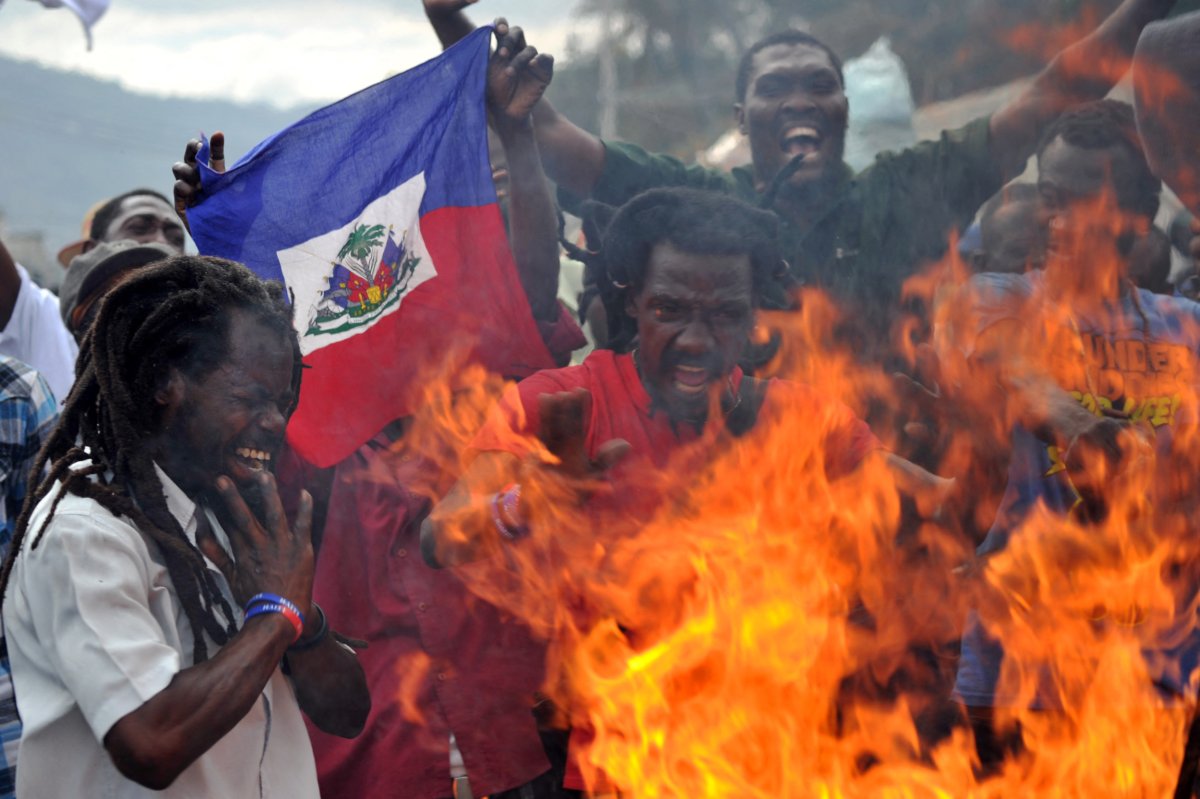Haiti's tumultuous politics have been rocked by fractions and led by highly divisive personalities who are often in league with criminals. Corruption is institutionalized, poverty is widespread, and the Haitians themselves are frequently victimized by the very politicians who are supposed to care for their needs. Foreign interventions, including a U.N.-led force that lasted for 15 years, have done nothing to mitigate the situation—if anything, the problems only grew worse after foreigners got involved.
Yet as perverse as it may sound, the days when U.N. troops were patrolling the streets look like a cakewalk compared to Haiti's current state. Ever since the 2021 assassination of Haitian President Jovenel Moïse, the Haitian government has been led by Prime Minister Ariel Henry, who most Haitians view as entirely illegitimate and ineffectual. There are no democratic institutions to speak of and virtually no democratic officeholders in the country. The World Food Programme reported in March that about half of Haiti's population, roughly 5 million people, are struggling to access food supplies. In some areas around Port-au-Prince, the capital city, the numbers go up to 97 percent.
All of this is occurring as a pool of gangs terrorize the population with impunity. The most recent report by the U.N. Integrated Office in Haiti assessed that more than 1,860 people were killed, injured, or kidnapped between April and June—a 14 percent increase from the previous three months. The Haitian National Police, plagued by recruitment problems, is unable to stem the bleeding. "Delays in recruitment and training have prevented the much-needed admission of new police officers," the U.N.'s mission in Haiti said, "raising serious concerns about the national police's capacity to enforce the law and restore public order throughout the country in the absence of urgent measures to address police workforce strength."
The security situation has gotten so bad that the U.N. Security Council approved yet another foreign-backed stabilization mission in the country this week, less than five years after the last U.N. troops withdrew from Haiti in disgrace. While the mission itself isn't technically administered and staffed by the U.N., it's a foreign intervention nonetheless. Interim Haitian Prime Minister Henry has spent the year clambering for international troops, yet it took months of backroom negotiations to find a nation to actually lead the effort. Due to Washington's own history of interference in Haitian affairs, the Biden administration flatly ruled out a deployment of its own. President Joe Biden's attempts to convince Canada to step up were unsuccessful, with Canadian Prime Minister Justin Trudeau viewing Canadian leadership on the Haiti file as geopolitical quicksand.
In the end, it was Kenya who agreed to lead the operation. About 1,000 Kenyan police officers will be sent to Haiti. When this will occur, which neighborhoods Kenyan forces will be prioritizing, and what exactly their mission will be is still up for debate. While the full Security Council resolution passed this week hasn't been released at the time of publication, reports indicate that the details are to be determined. Presumably, the mission will include the protection of critical infrastructure like airports, ports, key transportation routes into Port-au-Prince and facilities (like hospitals) that the civilian population needs to access on a daily basis. But if the idea is to defend these sites in order to free up the Haitian National Police for the grittier work of combating the gangs in the densely-populated capital, there's a big question mark as to whether the mission will succeed. With slightly more than 15,000 officers for a population of 10 million, the Haitian police are outgunned and outmanned by gangs like the G-Pèp coalition and Ti Makak. Kenyan officers will likely have to accompany Haitian police into gang-infested terrain in order to have a major impact. Civilian casualties are a certainty.

For the moment though, all of this is being put on the back-burner. For the Haitian government, the mere fact that the Security Council provided diplomatic support for a foreign intervention force is something worth celebrating. "The vote on this text represents significant progress towards resolving the multidimensional crisis that Haiti is going through," Haitian Foreign Minister Jean Victor Geneus told the U.N. Security Council on Oct. 2. "It is a glimmer of hope for the people that have for too long been suffering the consequences of a difficult political, socioeconomic, security and humanitarian situation." U.S. Secretary of State Antony Blinken referred to the U.N. vote as "important progress" and pledged $200 million in U.S. support, including enabling assistance. For the moment at least, there's a sense of cautious optimism that Haiti may have turned a page from the last few years of economic depression, death, and destruction.
We shouldn't underestimate Haiti's stabilization mission. It is difficult, both operationally and politically. There was a time not too long ago when U.N. officials were hopeful that the world could put a stop to decades of Haitian political turmoil. "This time I hope that the international community is not going to put a Band-Aid on, and that we are not only going to help stabilize the current situation but assist the Haitians over the long haul and really help them pick up the pieces and build a stable country," then-U.N. Secretary General Kofi Annan said to reporters after the U.N. authorized an intervention in February 2004.
Needless to say, those hopes were dashed—and there hasn't been much evidence in the years since that doing the same thing will achieve a different result.
Daniel R. DePetris is a fellow at Defense Priorities and a syndicated foreign affairs columnist at the Chicago Tribune.
The views expressed in this article are the writer's own.
Uncommon Knowledge
Newsweek is committed to challenging conventional wisdom and finding connections in the search for common ground.
Newsweek is committed to challenging conventional wisdom and finding connections in the search for common ground.
About the writer
To read how Newsweek uses AI as a newsroom tool, Click here.






